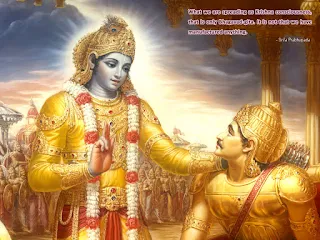We have more than enough examples to tell us this wisdom in our present times, but we just refuse to listen. The Kuwait War and Iraq Wars were just propaganda wars attacking something non-existent. It also proved that there is no such thing as precision bombing with zero casualties. It is no use telling us it is just collateral damage.
The Vietnam War showed how elections can be lost. When the body count piles up, and the disadvantaged fraction of society bears all the sorrows of seeing their sons returning in body bags while the elite dodges their way from drafting, the public knows they have been taken for a ride. It happens because, like a broken dam, war has a mind of its own that cannot be reined at will.
An episode in the Mahabharata tells us a thing or two about wars. All the war ethics were closely followed until about day 12 of the Kurukshetra War. With the battle heating up, casualties piling, and almost reaching a standstill, the Kaurava side decided to play dirty. Maybe the Pandavas, too. Krishna and Arjuna (of the Pandava clan) were steered away to fight with another faction. At the same time, Arjuna's son, 16-year-old Abhimanyu, was lured into a complex military calyx devised by master strategist Drona. As skilled as Abhimanyu was, he had learned about the military formation. He knew how to get in, but he was not taught how to escape from it. When Abhimanyu was caught in the maze, he was trapped and was unceremoniously killed from the back.
On learning of Abhimanyu's death, Arjuna took revenge the following day.
Legend had it that Jayadratha, who masterminded Abhimanyu's assault, had a special boon. His father, Vriddhakshtra, had learnt about Jayadratha's fall at war by beheading from his birth charts, had done severe penance and subsequently received a boon from Brahma. Whoever drops the son's head on Earth would have his head explode into a thousand pieces. With his unparalleled expertise with his bow and arrow, Arjuna shot Jayadratha's head to land right on the mediating Vriddhakshatra's lap. A shocked father instinctively moved his thigh, causing Jayadratha's head to fall on the floor. Vriddhakshtra's head broke into a thousand pieces as he wished/cursed. Be careful what you wish for; it is one lesson learned from this fiasco.
Legend had it that Jayadratha, who masterminded Abhimanyu's assault, had a special boon. His father, Vriddhakshtra, had learnt about Jayadratha's fall at war by beheading from his birth charts, had done severe penance and subsequently received a boon from Brahma. Whoever drops the son's head on Earth would have his head explode into a thousand pieces. With his unparalleled expertise with his bow and arrow, Arjuna shot Jayadratha's head to land right on the mediating Vriddhakshatra's lap. A shocked father instinctively moved his thigh, causing Jayadratha's head to fall on the floor. Vriddhakshtra's head broke into a thousand pieces as he wished/cursed. Be careful what you wish for; it is one lesson learned from this fiasco.
Another lesson from this turn of events happened long before this episode when the Pandavas were exiled for losing a game of dice. Jayadratha had acted ungentlemanly with Arjuna's wife, Draupadi. Instead of severely punishing him for his misdeeds, Arjuna and his brothers let him off with a slap on the wrist. If not nipped in the bud, a minor wrongdoing would morph into quite a monster difficult to curtail. Hence, lesson number two is to nip evil in the bud. Do not let it branch out and grow deep roots.








